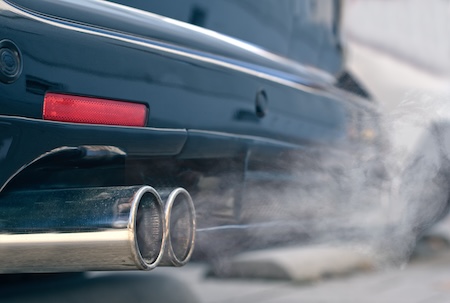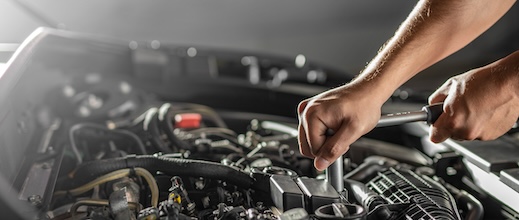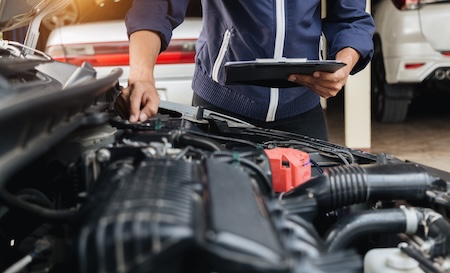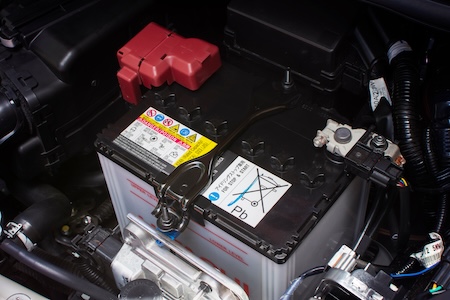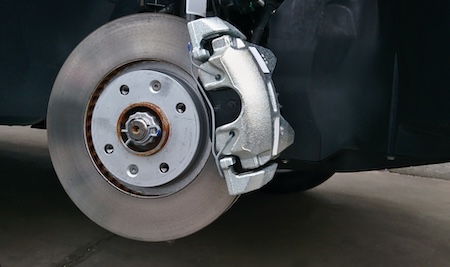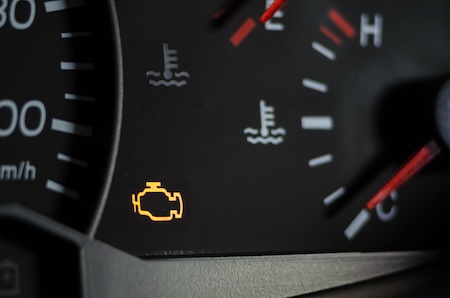Transmission problems don’t always come with loud alarms or dashboard warnings. Sometimes, they start quietly, like a slight delay when shifting gears or a strange new sound you can’t quite place. But if left unchecked, those small signs can grow into big, expensive problems. Worse yet, you could find yourself stranded on the side of I-25 or halfway up a mountain pass.
The good news? Most transmission problems give you warning signs … if you know what to look for. And with Denver’s steep grades, stop-and-go traffic, and climate extremes, being proactive about your transmission isn’t just smart, it’s essential.
Let’s talk about how to recognize transmission trouble before it wrecks your day (and your wallet).
Why the Transmission Matters
The transmission is one of your car’s most complex and expensive components. Its job? To transfer power from your engine to your wheels, allowing your vehicle to move and shift through gears smoothly. Without it, your car can’t drive—plain and simple.
Whether you drive an automatic or a manual, a healthy transmission ensures:
- Smooth gear transitions
- Proper engine performance
- Fuel efficiency
- Power delivery during acceleration and hill climbs
Neglect your transmission, and you could face:
- Slipping gears
- Delayed shifting
- Complete loss of drive
- Full transmission replacement (hello, $4,000+ repair bill)
Early Warning Signs of a Transmission Problem
If you’re buying a new or used car, you can do quick searches to find out which cars are more likely to have transmission problems. Consumer Reports often creates lists of cars that stand out within the industry.
But if you already own a car, it’s good to know and understand that a transmission problem rarely shows up without symptoms. You just need to know what to look—and listen—for.
Here are the top red flags that your transmission might be heading for trouble:
1. Slipping Gears
If your vehicle unexpectedly pops out of gear, shifts erratically, or struggles to stay in gear, that’s a big red flag. It may feel like the car hesitates or loses power when accelerating.
2. Delayed or Rough Shifting
Is there a delay when shifting from Park to Drive? Do you feel a hard “clunk” or hesitation when your car shifts gears? That’s a classic sign your transmission is struggling.
3. Unusual Noises
Grinding, whining, buzzing, or humming noises—especially when accelerating or shifting—could point to low transmission fluid, internal wear, or worn-out parts.
4. Leaking Fluid
Transmission fluid is usually bright red or pink. If you spot fluid puddles under your car (especially toward the middle or rear), don’t ignore it. Low fluid levels can cause severe damage.
5. Burning Smell
A burnt smell coming from your engine bay could mean your transmission is overheating. It might be due to old or insufficient fluid, or a more serious internal issue.
6. Dashboard Warning Light
Most cars have a transmission temperature or check engine light that activates if the system detects an issue. Never ignore these alerts.
Why Denver Drivers Need to Be Extra Vigilant
We don’t need to tell you that our city is special. You live here for a reason. Still, our city’s geography and climate put extra strain on your transmission:
- Mountain Driving: Going up and down steep grades forces your transmission to work harder. If you regularly drive in the Rockies, your system endures more wear than average.
- High Altitude: Engines and transmissions operate differently at elevation. Thinner air can impact cooling and performance.
- Winter Conditions: Cold temperatures thicken transmission fluid and delay optimal performance. Warming up your vehicle properly becomes more important.
- Stop-and-Go Traffic: City driving can wear your transmission faster than highway cruising. Constant gear changes increase wear on components.
All of this means Denver drivers should inspect and service transmissions more frequently than the national average.
Preventative Maintenance That Saves You Thousands
The best way to catch a transmission problem before it strands you? Stay ahead with regular maintenance and inspections.
Here’s what we recommend:
Check Transmission Fluid Regularly
Transmission fluid lubricates, cools, and powers internal components. Dirty or low fluid leads to overheating and premature wear.
- Check your fluid every 30 days (or at each oil change).
- Look for bright red/pink fluid that’s clear and not burnt.
- If it’s dark, dirty, or smells burnt—schedule a flush or change.
Note: Not all vehicles have a dipstick for easy checking. Ask your mechanic to inspect fluid levels during routine service.
Schedule a Transmission Service
Most manufacturers recommend servicing your transmission every 30,000 to 60,000 miles for automatic transmissions. Denver drivers may want to lean toward the lower end of that range, especially if they drive in mountains or haul heavy loads.
Transmission service includes:
- Fluid flush or replacement
- Filter change (if applicable)
- Inspection of seals and gaskets
- Scan for fault codes
Listen to Your Car
You know your vehicle better than anyone. If it starts acting differently—rough shifts, slow acceleration, weird noises—don’t wait. The longer you delay a diagnosis, the worse (and more expensive) the problem gets.
How We Diagnose Transmission Issues
We take transmission problems seriously because we know what’s at stake.
When you bring your vehicle to our Denver shop, here’s how we approach it:
- Initial Test Drive: Our techs start by feeling how your car shifts in real-world driving conditions.
- Visual Inspection: We look for fluid leaks, damage to the transmission housing, and worn components.
- Computer Diagnostics: Our scan tools pull codes from your vehicle’s computer to identify internal errors or malfunctions.
- Fluid Condition Check: We assess fluid level, color, and smell to determine if a flush or repair is needed.
- Clear, Honest Advice: You get a full explanation of what we found, what needs attention now, and what can wait—no pressure, just facts.
When to Get Your Transmission Checked
Here’s when you should prioritize a transmission inspection:
- After 30,000+ miles since your last fluid change
- If you notice shifting issues, noises, or hesitation
- Before heading into the mountains for a long trip
- After towing or hauling heavy loads
- If you’ve spotted leaks or smelled burning fluid
- When your dashboard light comes on
Don’t Let a Transmission Problem Catch You Off Guard
Catching a transmission problem early can save you thousands … and hours of frustration. While modern transmissions are more reliable than ever, they still require care and attention, especially in a place like Denver where driving conditions can be tough.
If something doesn’t feel right, don’t cross your fingers and hope it goes away. Bring it to someone who knows how to spot issues early and fix them right.
Need a trusted shop to check your transmission?
We’ve been helping drivers stay safely on the road for years. We’ll inspect your transmission with honesty, expertise, and care, and help you avoid unexpected breakdowns before they happen.
Book your appointment today and keep your car shifting smoothly, mile after mile.


